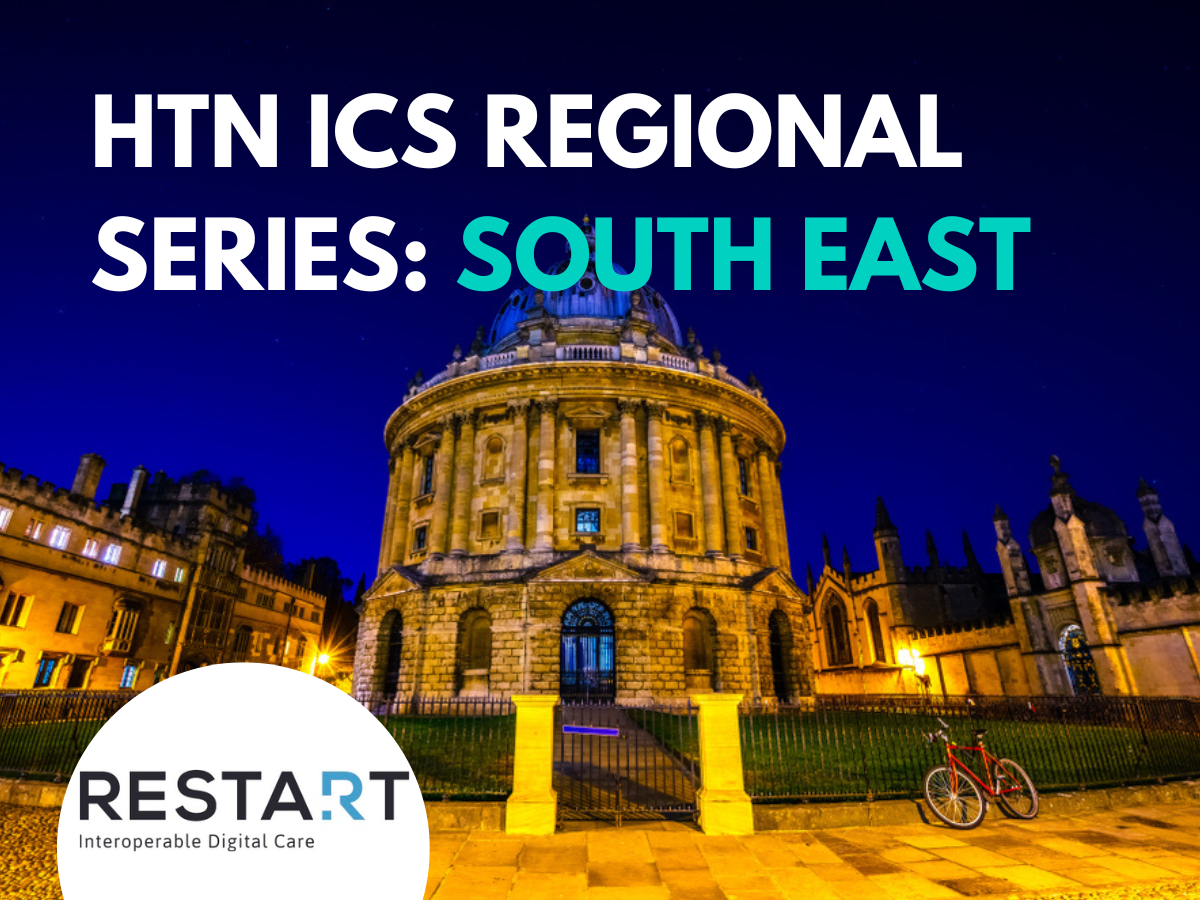
What do the digital priorities within the region look like, and what are some of the projects currently or recently taking place?
To explore these questions, we heard from Liz Pusey, communications manager for the digital team at Portsmouth Hospitals University NHS Trust, which sits under the umbrella of Hampshire and the Isle of Wight ICS. Liz shared that Portsmouth Hospitals University NHS Trust has “invested in a robust digital strategy that aims to deliver simple, secure and interconnected systems and tools that save time and effort, improving our ability to deliver excellent patient care”, with a focus on improving patient and staff experience and supporting the trust to work as efficiently as possible.
She highlighted a particular project in the Maternity Intelligent Automation Transformation Programme, which she said has “improved patient safety and experience when people come into contact with maternity services, delivering better outcomes, particularly in relation to the NHS Fetal Anomaly Screening Programme (FASP). Previously, we were offering combined tests on recommended dates to only 30 percent of women and now that figure is 98 percent.”
Using automation and an app, the trust has also “significantly reduced waiting times for appointments and reduced manual tasks to save approximately 18,000 staff hours per annum. Over 10,100 pregnant people have benefitted from this transformation of service and an average of 250 pregnant people or newborn babies a month have required emergency department care, which maternity services would not have previously been aware of.” This has also helped the staff experience, Liz noted, with staff feeling “better supported by technology, more fulfilled and able to spend more time caring for pregnant people and babies.” The project is currently shortlisted for a Parliamentary Award and since its implementation the maternity service has received its first ‘Good’ rating from the CQC, where the technology contribution has been highlighted as outstanding.
Looking to the future, Liz said that the trust is currently working through a “significant programme of digital improvement, driven by our digital business and digital health teams, which work with services to identify barriers to efficiency and opportunities for digital systems to save time and streamline processes.”
A particular project in progress is that of the patient engagement portal, which allows patients to securely access and manage their appointment information and complete assessment questionnaires, read pre-appointment information and access NHS health and wellbeing information. “Data has shown us that the system reduces call queues, reduces Did Not Attend (DNA) rates by increasing appointment capacity and reduces wait times, demonstrating positive improvements for patients and staff,” said Liz. “With a lot less letters to print, we are also reducing our environmental impact and contributing to the wider trust’s commitment to sustainability. We are working to bring all trust services on board and have had thousands of patients register so far.”
Within the ICB, the trust is also focusing on the national Frontline Digitisation programme, with Liz explaining: “For us this means introducing an EPR and working towards a single solution across all four of the acute hospitals in Hampshire and the Isle of Wight.”
Here at HTN we also recently shared our interview with Ian Roddis, director of digital, data and technology at Buckinghamshire Healthcare NHS Trust. He discussed digitisation at ICB level as part of his interview, saying: “From an ICB perspective, we have a digital team growing in experience of working with primary and secondary care providers. We ’re now starting to build a permanent team around the ICB. As well as the in-hospital journey of digitisation, the ICB will mature as well, which I believe will bring benefits – perhaps procurement advantages, for example.”
Whilst working in a previous role at NHS Digital, Ian was a product lead for a number of squads which included a mixture of data, digital and technology professionals. He explained how the roles tended to be at a high level, which meant they cost a lot. “I think the ICB will give you the ability to build design squads, and user researchers that work across the ICB. No single trust could afford that, but I hope the shared services model will start to bring capabilities and skills, that can be afforded across the ICB. I think increasingly we will see ourselves working as a system,” he said.




